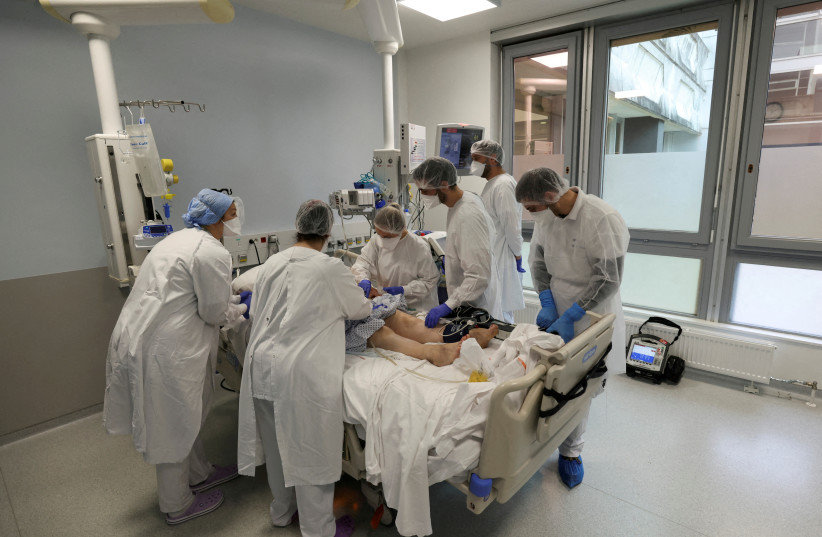When someone contracts COVID-19, how likely are they to develop severe medical complications?
Dutch researchers developed an algorithm that can accurately predict the risk of developing severe complications, including hospitalization, institutionalization and death, publishing their findings last Thursday in the peer-reviewed British Medical Journal.
In March 2020, the Netherlands became overwhelmed by the rapidly-growing COVID-19 pandemic; intensive care units (ICUs) quickly filled with patients who had developed severe complications from the disease, leading the Dutch government to declare a lockdown. After a second spike in hospitalizations swept the country beginning in that August, another lockdown and a curfew were mandated.
Unpredictable rises in infections continue to ravage the Dutch healthcare system and economy, necessitating a method of predicting the likelihood of severe COVID-19 complications. Led by Dr. Ron Herings of the Department of Epidemiology and Data Science at VU University Medical Center Amsterdam (VUmc), the researchers collected information from a database of COVID-19 diagnoses and comorbidities in the country.
Some 264 general practitioner practices, about 5% of all GP practices in the country, reported 6,074 COVID-19 cases between April 10, 2020, and January 21, 2021. There were 291 patients (4.7%) who had severe complications. 181 of these patients (62.2%) were hospitalized, 59 (20.3%) were treated in a nursing home and 51 (17.5%) died.

Using these data, the researchers developed an algorithm that would account for factors including age, sex, obesity, neighborhood deprivation score, confirmation test, chronic comorbidity and whether the infection occurred during the first wave or the second.
The algorithm proved to be mostly accurate in predicting severe COVID-19 complications during the first and second waves of infections in the Netherlands. The researchers noted that it can be used to identify persons at especially high risk of developing severe complications based on medical records, which could help prioritize these persons for vaccination. However, they added the caveat that "the regression estimates can and need to be adjusted for future predictions."
